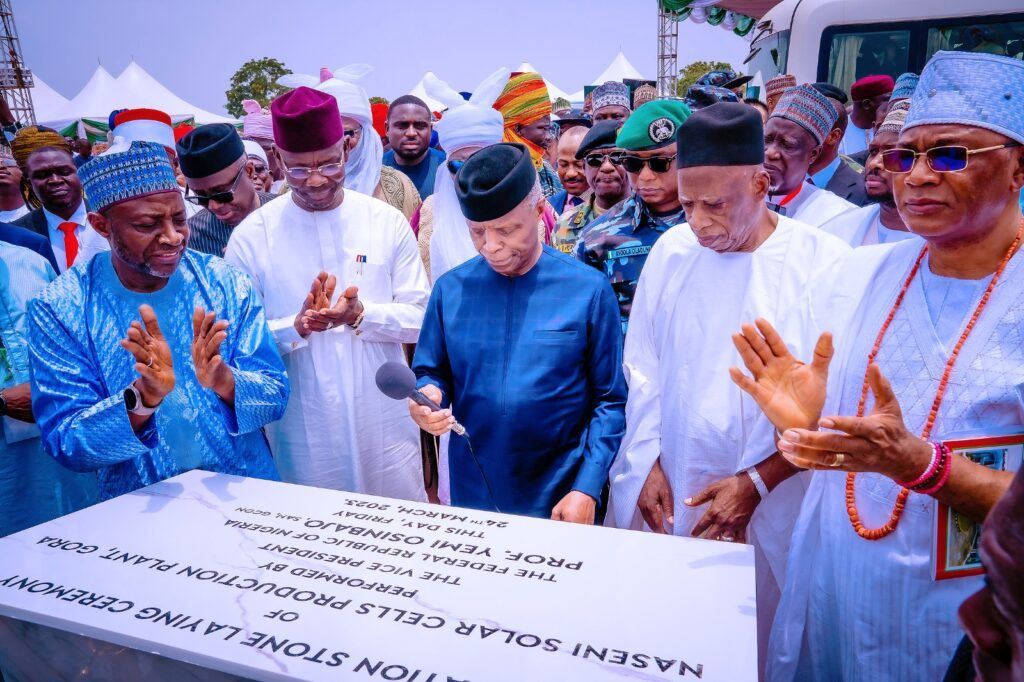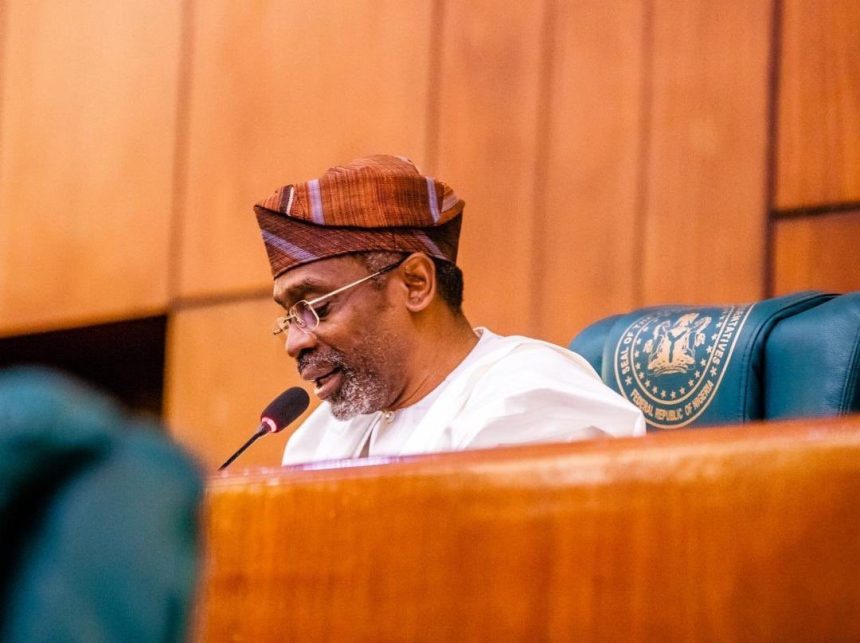Vice President Yemi Osinbajo on Friday laid the foundation for the establishment of the first solar cell production factory in West Africa in Gora, Nasarawa State.
This is part of Federal Government’s efforts towards transforming Nigeria’s power and energy sector which will rank Nigeria among countries adopting alternative energy sources, and also transform nation’s power and energy sector and boost the local economy.
Speaking while laying the foundation for the National Agency for Science and Engineering Infrastructure (NASENI) Solar Cells Production Plant in Gora, Nasarawa State, Osinbajo declared that “this landmark achievement places Nigeria within the ranks of countries pushing the boundaries in the use of climate-smart alternative energy sources, particularly solar power. And as we have heard, this particular project is building on 10 years of work. 10years ago, NASENI established its 7.5mw solar panel production plant. Its capacity is now 21MW.”
Highlighting the importance of Solar cells to the entire solar energy value chain, the Vice President observed that NASENI’s solar cell production factory in Nigeria will be a game-changer, given the urgency of climate action today and the importance of developing African green energy manufacturing and solutions.
Osinbajo who linked the historic development with the Federal Government’s proactive steps in ensuring adequate funding for NASENI, stated that this is a new dispensation for the government agency.
With one per cent allocation from the federation account annually as prescribed by its founding law, the Vice President was of the view that NASENI has been given the financial backing to execute its mandate of delivering technological and innovative interventions across critical sectors of the economy, including Agriculture, Health, Defence and Security, Power and Energy, Financial Services, Solid Minerals, Additive Manufacturing, Smart Fabrications, Factories, Unmanned Aerial Vehicles, and Virtual Manufacturing.
According to him, “for over 10 years, NASENI has been consistent in championing solar power as an alternative to hydro and fossil power sourcing. And it was to this end that the agency established NASENI Solar Energy Limited (NSEL) in Karshi, Federal Capital Territory, with a mandate to deliver alternative solar energy to homes and businesses in Nigeria.
“The development and maturity of the Naseni Solar Energy Ltd whose operations have been driven with the vim and zest of a tech start-up, forecast an increase in local content of the solar energy production system in Nigeria, leading to ever-increasing production of solar cells.”
Pointing out that $50 billion worth of diesel fuel is used yearly, with diesel generators producing more energy than the entire energy grid in 17 countries in Sub-Saharan Africa, Osinbajo observed that the resultant emissions of carbon monoxide has since become a major and worrying source of pollution.
“In Nigeria, for example, generator emissions are equivalent to emissions from all of the country’s 11 million cars put together.”
Emphasizing that this method was clearly unsustainable and required a significant shift, the Vice President stated that this was the reason why Nigeria developed its Energy Transition Plan, the first in Africa.
According to him, the Plan, which was approved by the Federal Executive Council last year sets out the pathway to decarbonization by 2060 and achieving universal energy access by 2030.
“The Nigeria Energy Transition Plan projects an increase in the use of solar power in the Nigerian energy mix, surpassing even gas by 2035,” he added.
Coupled with the foundation now laid for the solar cell factory in Nasarawa, Nigeria’s efforts in adopting innovation is consistent with the African Union’s energy transition plan, Osinbajo pointed out, noting that the factory came at a crucial time.
“Not only is the beneficiation model it has adopted innovative and consistent with the African Union’s energy transition plan in the face of global warming, its output, at full operational capacity, will further impact the solar energy value chain in Nigeria through the low production costs of solar panels.
“In due course, this will in turn attract new investment, local and foreign, for the establishment of solar panel manufacturing plants across Nigeria,” he said.
The Vice President also commended the siting of the factory in Gora, Nasarawa State which he said is “the home of solid minerals in Nigeria.”
According to him, “the major raw material requirements for the production of Solar cells – silicon and silica – are naturally occurring in abundance in this area. We are grateful to the good people of Nasarawa for hosting this important project and congratulate you in advance for the positive boost it is certain to bring to the local economy.”
He congratulated the government and the people of Nasarawa State, as well as the NASENI leadership led by its executive Vice Chair, Prof, MS Haruna, on behalf of President Muhammadu Buhari, who is the Chairman of the governing board.
Earlier in his remarks, Governor of Nasarawa State, Engr. Abdullahi Sule, thanked the Vice President for his concern towards the development of the State, country and the welfare of its people.
*From ThisDay









